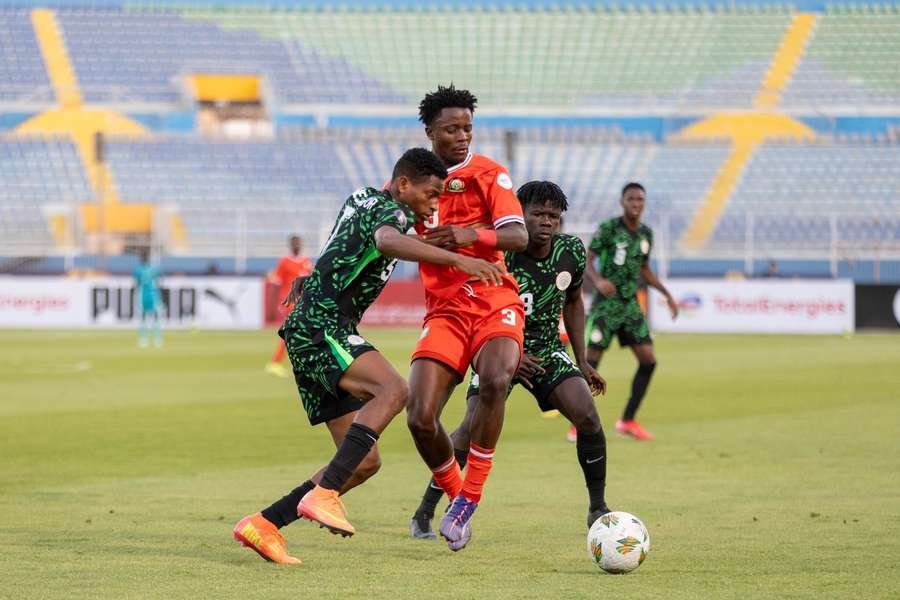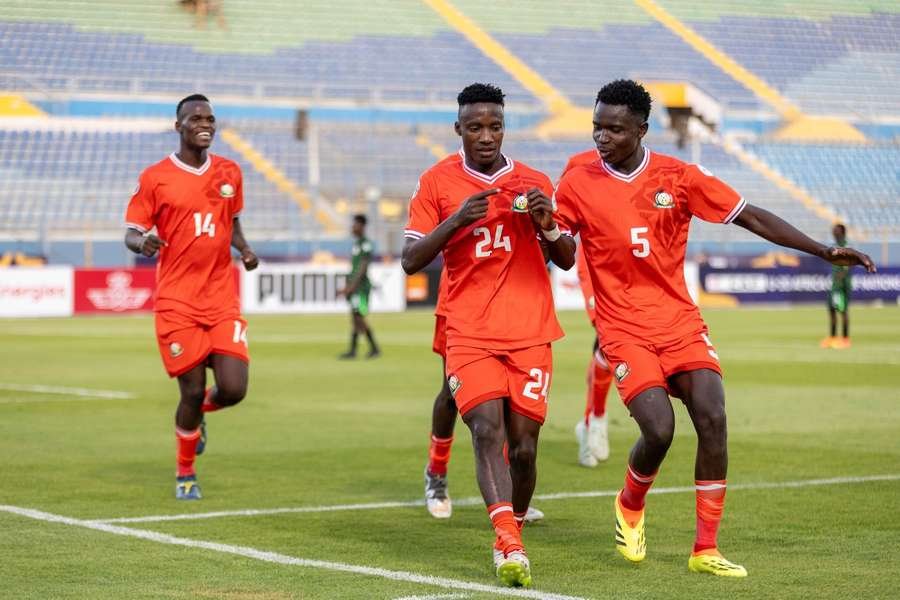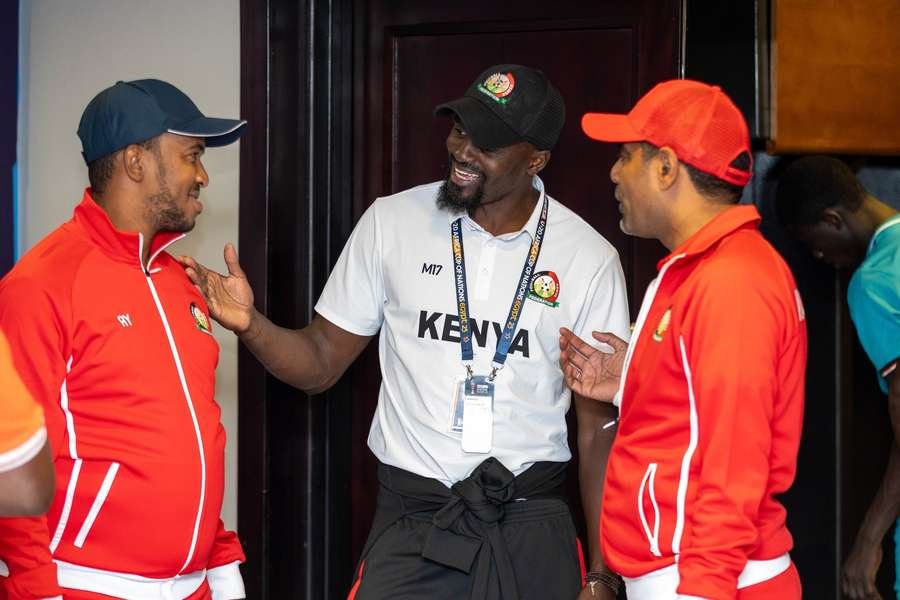Anthony Akhulia, the assistant coach of Kenya’s national U20 football team, has shared insights into the challenges that led to the team’s inability to progress beyond the group stage at the TotalEnergies CAF U20 Africa Cup of Nations (AFCON) held in Egypt.
Making their debut at this prestigious Confederation of African Football (CAF) tournament, the Rising Stars were placed in Group B, facing off against historical powerhouses Nigeria, Morocco, and Tunisia. Under the guidance of coach Salim Babu and Akhulia, Kenya opened their campaign with a narrow 3-2 loss to Morocco, followed by a 3-1 defeat to Tunisia, before finishing their group stage with a 2-2 draw against Nigeria.
Kenya qualified for this tournament after a stellar performance at the CECAFA U20 qualifiers, where they remained unbeaten, demonstrating impressive attacking prowess by scoring 14 goals and conceding just one. Despite taking the lead in all three of their group matches, they struggled to maintain their advantage.
In their match against Morocco, the Rising Stars got off to a promising start, netting their first goal in the 16th minute when Lawrence Ouma scored with a powerful header from Kevin Injehu’s precise free-kick. Unfortunately, Morocco equalised just before half-time, with Yassir Zabiri finding the net, although this was confirmed by VAR after initial doubts regarding a possible foul.
As the second half commenced, Zabiri quickly added a second for Morocco with a close-range header. Kenya responded when Hassan Beja equalised with a fierce shot from inside the box after a clever exchange with Aldrine Kibet, bringing the score to 2-2.
Morocco, however, kept up the pressure, regaining the lead in the 78th minute through Reda Laalaoui, who coolly converted a pass from Saad El Haddad to make it 3-2.
Similarly, in their subsequent game against Tunisia, the Rising Stars struck first with Ouma again on target, but Tunisia fought back, equalising just before half-time via a penalty from Fares Bousnina after VAR confirmed a handball by Baron Ochieng.
Post-break, the Carthage Eagles dominated, eventually sealing the game with goals from substitutes Omar Ben Ali and Alaeddine Derbali. In their final fixture against Nigeria, Kenya showed resilience, taking the lead twice, yet they were pegged back each time by their more seasoned opponents.

FKF Media
In the match against Nigeria, Kevin Injehu gave Kenya a perfect start by converting a penalty in the sixth minute after Emmanuel Chukwu’s handball was confirmed by VAR. However, Nigeria struck back quickly, with Kparobo Arierhi levelling the score in the 13th minute after benefiting from a through ball from Simon Cletus. Kenya stunned Nigeria midway through the second half with a set-piece goal from substitute William Gitama, putting them 2-1 up.
Yet, joy was short-lived as Nigeria’s captain Daniel Bameyi converted a penalty after Rickson Mendos was fouled in the box, bringing the score to 2-2.
Rising Stars Struggled Under Pressure
Akhulia believes that the primary issue for Kenya was their inability to handle pressure and protect leads during matches. He remarked, “We made critical errors, thinking they weren’t mistakes on our part, but after VAR reviews, they were punished. We’ve all learned valuable lessons, as both coaches and players. It’s significant to understand that when you’re on such a big stage, the game changes.”
He elaborated on areas where Kenya must enhance their game for future competitions: “We need to fortify our mental resilience, especially among our players. We struggled to maintain our composure when leading 1-0 and conceded whenever pressured.
“Developing a stronger mentality is crucial for how we manage our gameplay. Our exit from the tournament stemmed from a failure to control matches effectively. In key moments, we had the lead but did not know how to manage the game. Both Morocco and Tunisia capitalised on this weakness, outplaying us.”

FKF Media
Investment in Youth Football Essential for Kenya’s Future Success
Football Kenya Federation (FKF) President Hussein Mohammed stressed the need for a greater investment in youth football to elevate Kenya’s competitiveness on the international stage. He stated, “What’s clear here is the lack of experience; we need more exposure in tournaments like this to compete effectively.”
“Additionally, we must focus on investing in football at all levels. Many of the nations we faced have been nurturing their talent for years, boasting the necessary infrastructure and academies that allow their players to transition into professional careers at an early age.”
“Fostering a solid foundation in the sport, starting from school and youth levels, will pay dividends over time.”
Mohammed continued, “Our focus should be on nurturing U15 and U17 players over the next five to seven years. This could lay the groundwork for a strong national team.”
“Committing to consistent investment and establishing robust governance structures and coaching systems is crucial. We must enhance the skills of our coaches, players, and administrators—our roadmap for success is clear.”

FKF Media
Kenya’s Performances at AFCON Were Anticipated
Nigeria’s coach, Eric Chelle, praised Kenya for their commendable performances during the tournament, noting their ability to create opportunities despite not advancing to the quarter-finals. He remarked, “I admire their transition play when recovering the ball, leading to quick counter-attacks with four offensive players who are tremendously fast and capable of scoring at any moment.”
“However, they need to enhance their defensive capabilities, particularly in positioning themselves during opposition attacks, as fatigue often becomes an issue in critical moments.”
Reflecting on the match between Kenya and Nigeria, Chelle commented, “The match was gripping and a great encounter. I was impressed by Kenya’s performance, though not surprised, as their national team has been consistently improving, evidenced by my close observation of their matches.”
Upon conclusion of their group stage, Kenya finished last in Group B, having scored five goals and conceded eight, collecting just one point. Morocco topped the group with seven points, followed by Nigeria with five points, both progressing to the knockout stages.

Flashscore News
Compiled by SportArena.com.au.
Fanpage: SportArena.com.au.
LiveScore – Live Sports Results & Odds.




